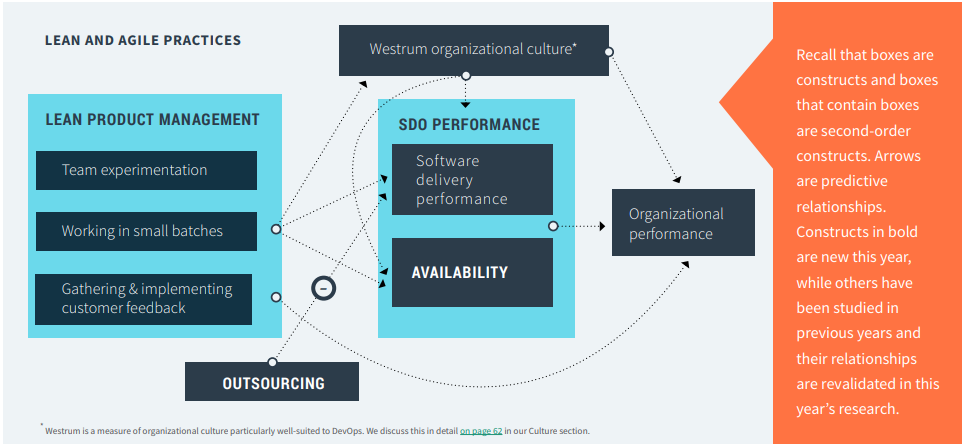Lean Product Development
A consistent theme over the past 4 years of "State of DevOps Reports" has been the relationship between Lean product management and efficient software production and deployment.
Our research confirms findings from earlier studies: Lean product management capabilities positively impact software delivery performance, organizational culture, and organizational performance. Our research this year also finds new results: outsourcing negatively affects software delivery performance and Lean product management positively affects availability.
In the 2016 State of DevOps research, it was made abundantly clear that certain management practices predicted higher IT performance, and lower deployment pain. Those practices included:
- decomposing work into small batches
- creating MVPs
- actively seeking customer feedback as an input for product design
In 2017, the research dug deeper and found that IT performance predicts lean product management practices. In other words, improving your software delivery pipeline has a direct impact on your ability to work in small batches and incorproate customer feedback along the way.
It's also worth noting that in the 2017 State of DevOps, the ability to take an experimental approach to product development was highly correlated with the technical practices that contribute to continuous delivery.
The 2018 DevOps report looked at the trend of organizations to try and purchase tools or implement methodologies to facilitate Lean practices. What was most important was not which tools or metholologies, but rather, the capabilities that they enable.
Cross-Functional Teams
The idea of cross-functional teams is central to many Agile approaches. According to the Scrum Guide, Scrum Teams should be "self-organizing and cross-functional", and it goes on to say that "cross-functional teams have all the competencies needed to accomplish the work without depending on others not part of the team."
The research gathered in the 2018 State of DevOps report has found that low performers were twice as likely to be developing and delivering software in separate, siloed teams than elite performers.
